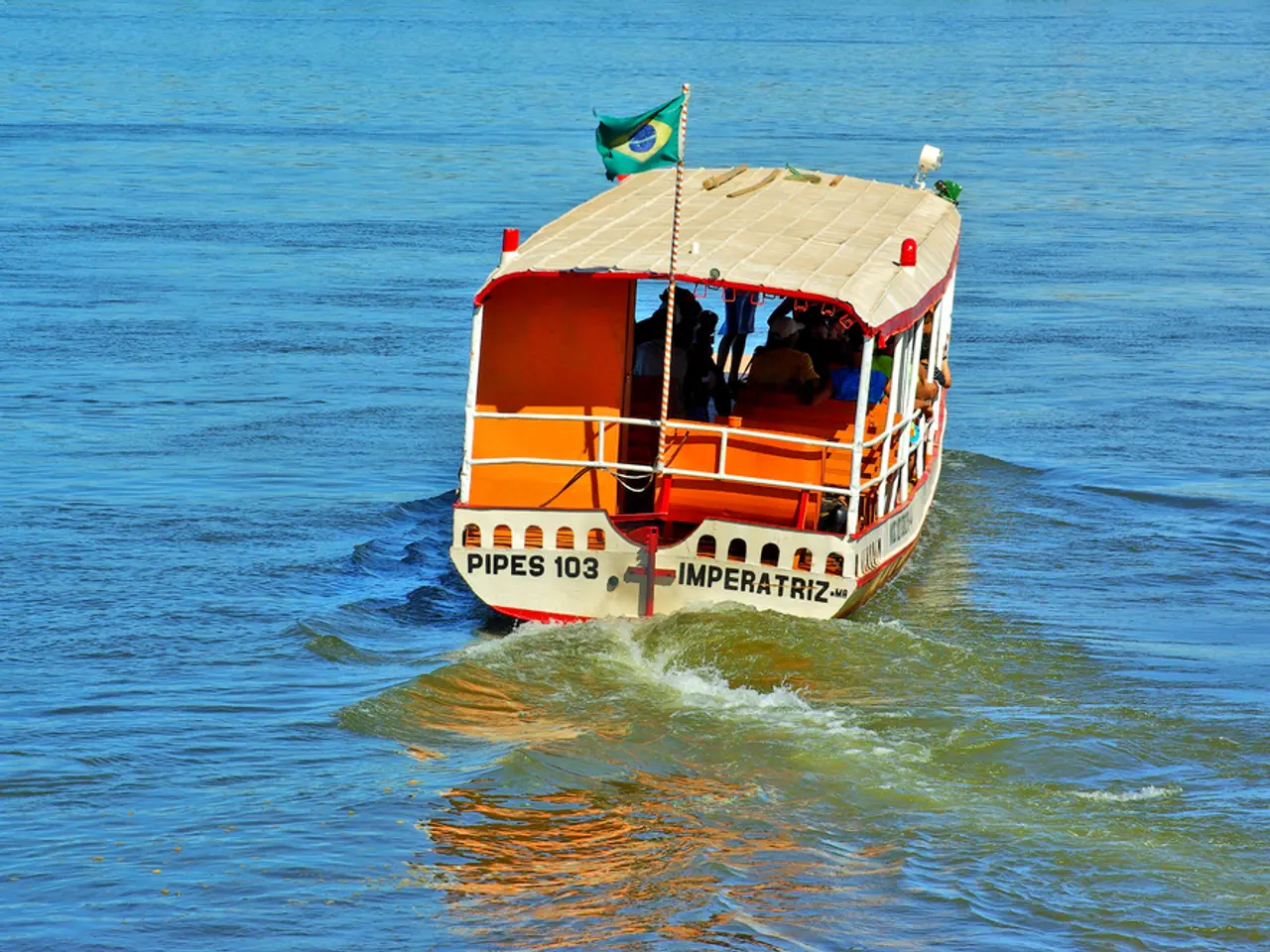Maritime Misfortune: Hidden Gambling Perils Aboard Ocean Vessels
In the wake of a recent tragedy, the practice of gambling on cruise ships is coming under increased scrutiny. Shane Dixon, a 50-year-old father of three, tragically went overboard from the Pacific Adventure cruise ship last week, sparking a dialogue about responsible gambling practices onboard these vessels.
Dixon's last night on the ship was marked by a $4,000 gambling debt accrued in a single evening, highlighting the potential for excessive gambling that can lead to dire consequences. His story serves as a catalyst for change, prompting a critical examination of gambling practices on cruise ships.
The cruise line has expressed a commitment to responsible gambling practices, but the specifics of these policies and their enforcement are under scrutiny. Cruise ship casinos typically follow regulations similar to those enforced by the Nevada Gaming Control Board (NGCB), which is considered a gold standard in casino regulation. However, games may have less favorable odds than land casinos, sometimes favoring the house more.
Regulatory jurisdiction for cruise ship gambling is complex. Ships follow the laws of their flag state once they venture into international waters, approximately 12 nautical miles from land, where local port gambling laws no longer apply. This murky legal landscape has amplified the call for stricter regulations.
In Australia, laws tightly regulate gambling and alcohol use within territorial waters, but these rules become murky once a ship ventures into international waters. The hope is that this tragic incident will inspire a more vigilant approach to responsible gambling on cruise ships, ensuring the thrill of the game does not come at the cost of a life.
Carol Bennett, CEO of the Alliance for Gambling Reform, expressed dismay over the incident and advocated for cruise lines to bear a greater responsibility in mitigating gambling harm. Industry players are increasingly engaging with gaming associations to raise responsible gambling standards. For instance, Carnival joined the American Gaming Association in 2025, signaling increased alignment with responsible gambling standards common on land-based casinos.
However, as of mid-2025, there is no explicit new federal legislation targeting responsible gambling specifically on cruise ships. Ongoing U.S. Senate activity around maritime laws such as "Hammers’ Law" pertains generally to actions occurring on the high seas, including cruise voyages—not directly about gambling regulation.
In summary, cruise ship gambling regulation is governed mostly by the ships’ flag states and voluntary adherence to established casino standards like those of Nevada, with casinos opening only in international waters to bypass local port restrictions. While there are no significant new legal proposals targeting gambling specifically on cruise ships, industry players are increasingly engaging with gaming associations to raise responsible gambling standards.
| Aspect | Current Regulations | Proposed/Recent Changes | |----------------------------|------------------------------------------------|-----------------------------------------------------| | Regulatory jurisdiction | Ships follow flag state laws once in international waters (12 nautical miles out) | No new specific legal changes yet; ongoing Senate maritime bills unrelated specifically to gambling[4] | | Industry standards | CLIA members follow Nevada Gaming Control Board standards (e.g., 75% min payout, annual inspection) | Carnival joined American Gaming Association in 2025 for stronger responsible gambling alignment[1] | | Game rules & payouts | Games may have less favorable odds than land casinos (e.g., 6:5 blackjack, slot payback ~80%) | No uniform change announced; variations persist by ship and line[3] | | Responsible gambling focus | Inspections and voluntary adherence | Industry trend toward improved standards via association memberships |
[1] Cruise Industry News. (2025, March 1). Carnival Corporation announces membership in American Gaming Association. [online] Available at: https://www.cruiseindustrynews.com/carnival-corporation-announces-membership-in-american-gaming-association-030125/
[2] Gambling.com. (n.d.). Gambling on Cruise Ships. [online] Available at: https://www.gambling.com/guides/gambling-on-cruise-ships/
[3] The Guardian. (2021, June 16). Gambling on cruise ships: the industry's hidden addiction. [online] Available at: https://www.theguardian.com/travel/2021/jun/16/gambling-on-cruise-ships-the-industrys-hidden-addiction
[4] The Hill. (2021, February 25). Senate bill would allow lawsuits against foreign ships over passenger deaths. [online] Available at: https://thehill.com/regulation/court-battles/541813-senate-bill-would-allow-lawsuits-against-foreign-ships-over-passenger
- The tragedy experienced by Shane Dixon during a gambling session at a casino-and-gambling on a cruise ship has sparked a discussion about mental-health and responsible-gambling practices within the health-and-wellness sphere, particularly in the context of cruise ships.
- As the cruise line commits to responsible-gambling principles, yet the details of these policies and their implementation remain under examination, industry leaders like Carol Bennett, CEO of the Alliance for Gambling Reform, are pushing for stricter regulations to address issues related to gambling harm.
- While there are no recent significant federal legislative changes targeting responsible gambling specifically on cruise ships, the cruise-and-casino industry is embracing the call for change by increasingly aligning with land-based casino standards through association memberships, such as Carnival's decision to join the American Gaming Association in 2025.





